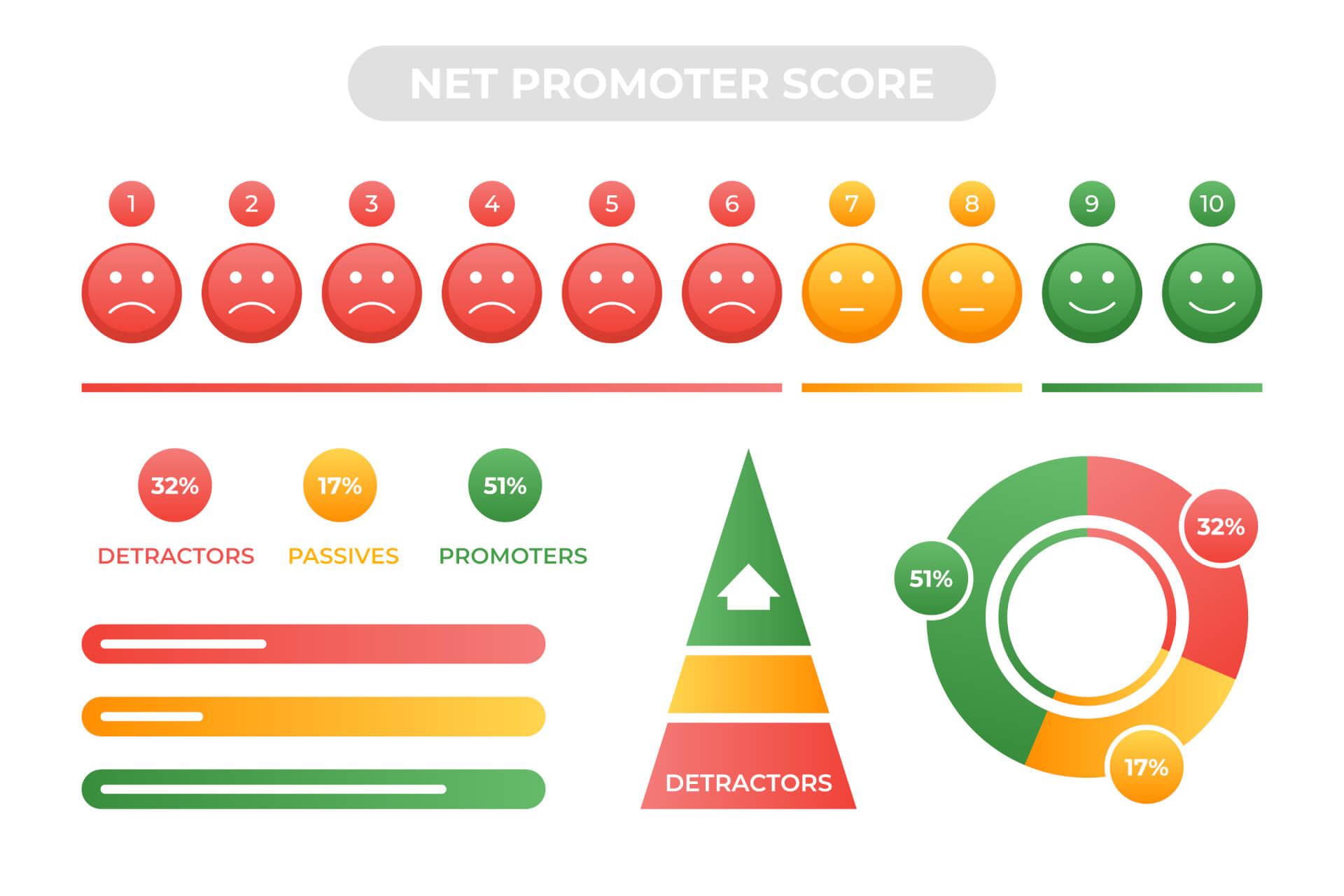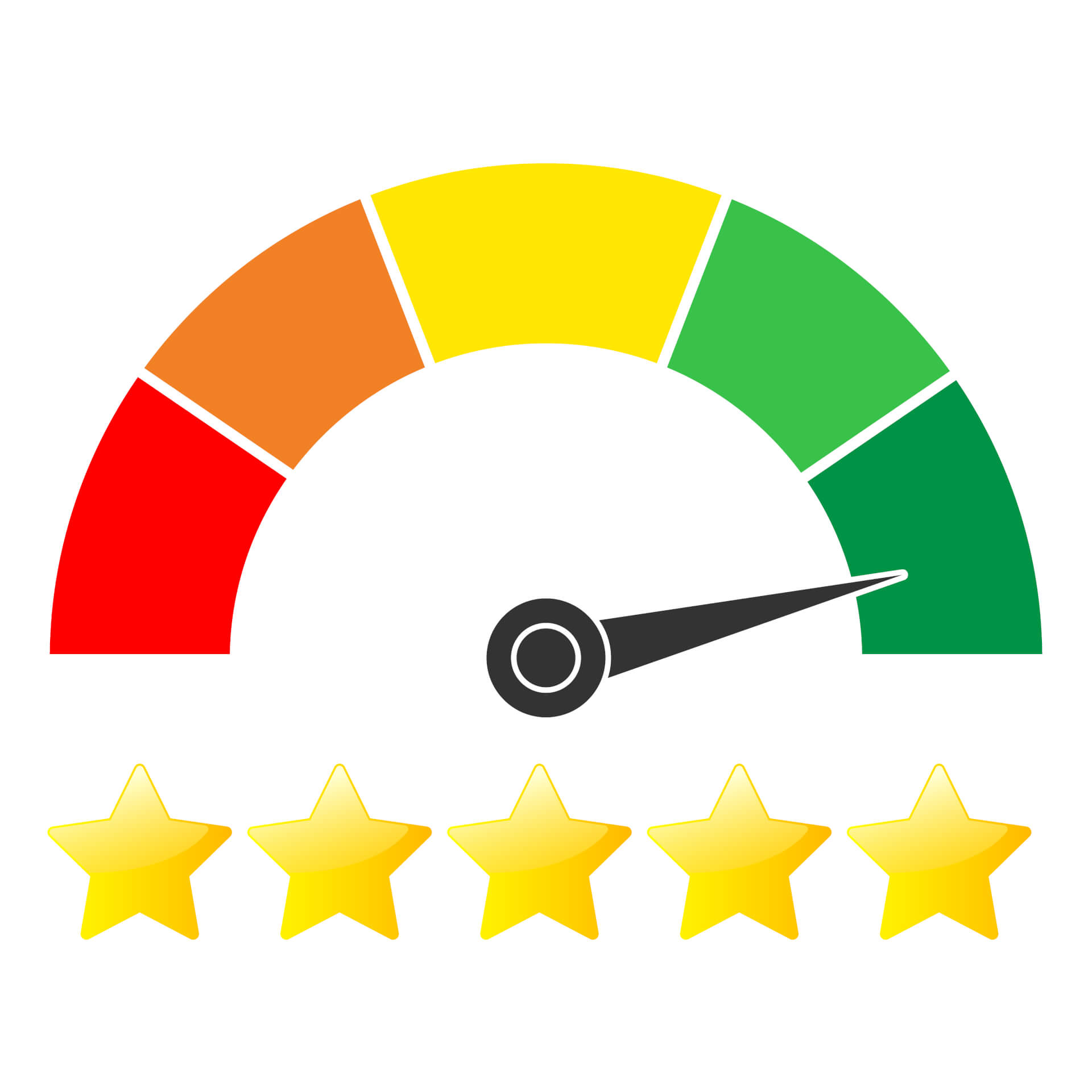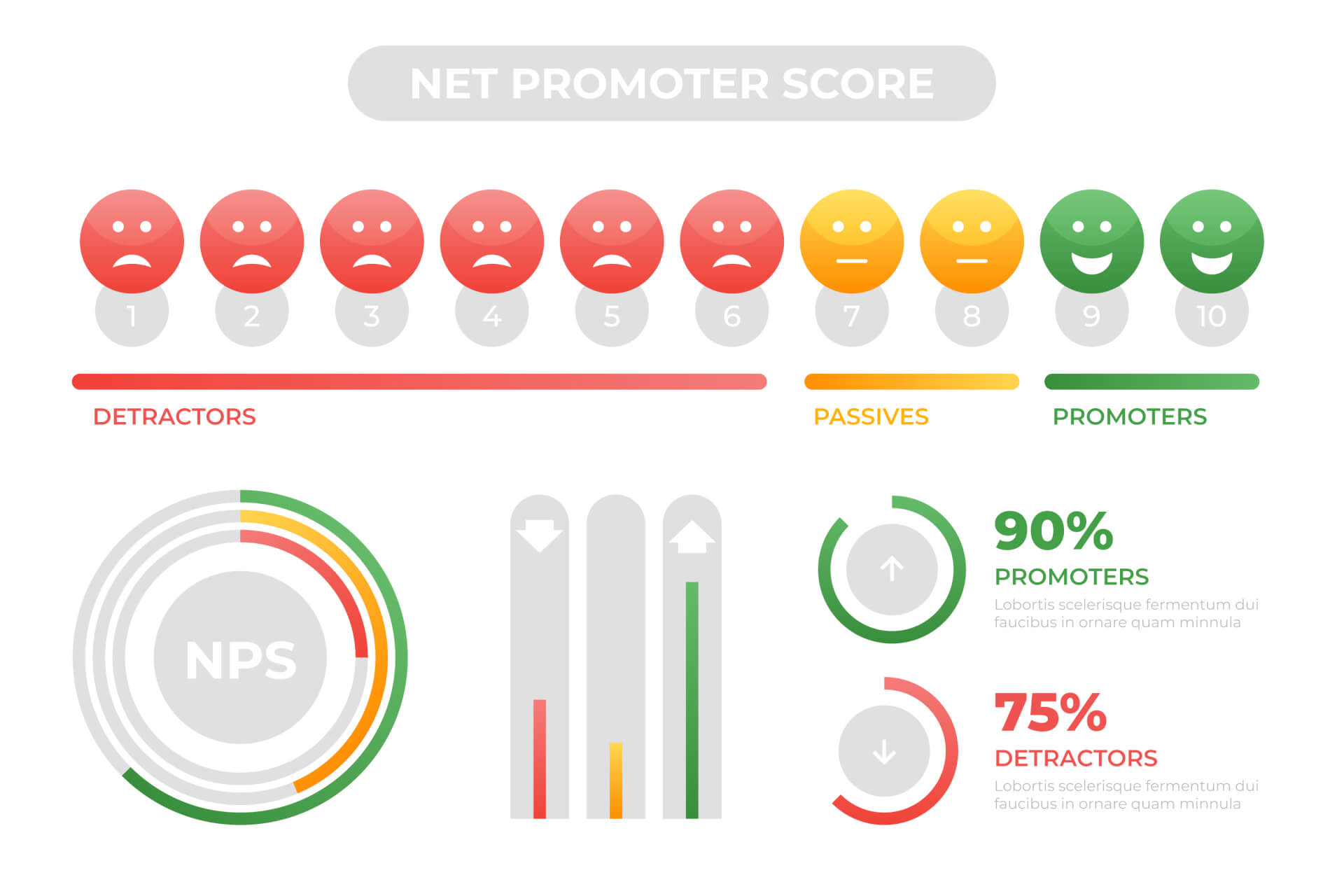Is your Net Promoter Score a reliable metric to measure what customers think of your business, or is it biased?
This is a common question that can be particularly worrying for small businesses that already have close relationships with their customers.
For example, can you trust the Net Promoter Score data if the customer who left it happened to be a personal friend or acquaintance? Can you trust your Net Promoter Score as a whole when you are in close contact with many of your customers?
Biases are common in surveys and sample surveys, and while it is impossible to completely remove them, there are ways you can improve the quality of your data.
 Here we would like to take a closer look at the impact personal relationships can have on the accuracy, value, and bias of your Net Promoter Score.
Here we would like to take a closer look at the impact personal relationships can have on the accuracy, value, and bias of your Net Promoter Score.
Table of Contents
Every company has a relationship with its customers

It can be easy to write off NPS data as biased or biased when you have a close professional or friendly relationship with your customers.
After all, it's easy to imagine leaving a review on a friend or family member's business that is overly supportive and positive.
With this in mind, it's important to remember that every company has some relationship with its customers:
- Every agency or service company that is in contact with its customers through account managers or other employees has a relationship with its customers.
- Any product-based company that has impressed its customers with excellent service or an excellent product has an indirect relationship with its customers through its products.
- Any business built around a public figure has a relationship with its customers through advertising.
Any of these relationships could potentially affect the customer's ability to collect unbiased NPS data.
You see, relationships are a natural part of business and certainly not an undesirable one.
Any company with satisfied or dissatisfied customers has a “bias” that could have a positive or negative impact on its data.
A skewed positive NPS isn't necessarily a bad thing
 Another important point to note is that having a positively skewed NPS score for customers you have a personal relationship with isn't necessarily a bad thing.
Another important point to note is that having a positively skewed NPS score for customers you have a personal relationship with isn't necessarily a bad thing.
The reason for this is simple: when you have a positive relationship with a customer, they are more likely to remain a customer than if they were a stranger. By default, companies have relationships with their customers, and a positive one is very good for the duration of the cooperation.
If you manage to get closer to a particular customer, it will likely lead to some level of positivity for your NPS. The positivity is not due to inaccuracy or sampling errors, but rather to the strong relationship you have with that particular customer (and possibly others).
As long as you have a large enough audience to generate reliable, accurate data, the biases in your Net Promoter Score aren't a bad thing.
On the contrary, they are an honest reflection of your customer relationships and customer satisfaction with your product.
A selected distortion, on the other hand, can be a real problem

Let's consider the following, common scenario:
Your company surveys its customers and receives a very high Net Promoter Score. After digging into the data, you find that the high score is due to the fact that most of the customers ignore your survey and only respond to the customers with whom you are friends.
In a situation like this, all you get is “biased” data that can increase your NPS, excluding data from customers with whom you are not closely related.
The end result is an artificially high score - one that can give you an overly optimistic view of your company's attachment health.
The Net Promoter Score is designed for accuracy. The higher the response rate of your survey, the higher the accuracy. For a very precise evaluation, NPS experts give a response rate of 40% for business-to-consumer companies and 60% for business-to-business companies.
Anything below that is much more likely to be influenced by selection bias and could paint an overly positive picture of your company's ability to satisfy and retain its customers.
This means that if your business deals with a small number of customers that you have a personal connection with, you need to aim for a higher than average response rate to ensure your data is not affected by bias.
How to reduce bias in the Net Promoter Score
If you are concerned that skewed results are affecting the accuracy of your Net Promoter Score, there are several steps you can take to reduce the impact of overly friendly responses and feedback:
- Reach out directly to customers who are close to you and ask them to be as honest and objective as possible with their review and feedback. Explain to them that if it is an honest summary of their feelings about your product or service, a low score or negative feedback will not make you feel offended or upset.
- Survey large numbers of customers so that “biased” results from friends and acquaintances are offset by the greater number of results from unfriendly customers.
- Instead of focusing on static NPS data like your score at any one point in time, focus on your company's progress by measuring NPS improvements.
These are much less likely to be affected by biased results.
Simplify your NPS process with Callexa
Callexa makes it easy to survey your customer base and calculate your Net Promoter Score. Instead of manually managing your NPS process, you can automate your NPS emails to get helpful, regular feedback from your most important clients and customers.
Find out more about how Net Promoter Score works and how it can benefit your business, and start surveying your customers with Callexa now.
 Reading recommendation: If this article helped you and you would like to find out more about the Net Promoter Score, continue reading here: “The Net Promoter Score – Basics and Areas of Application”
Reading recommendation: If this article helped you and you would like to find out more about the Net Promoter Score, continue reading here: “The Net Promoter Score – Basics and Areas of Application”